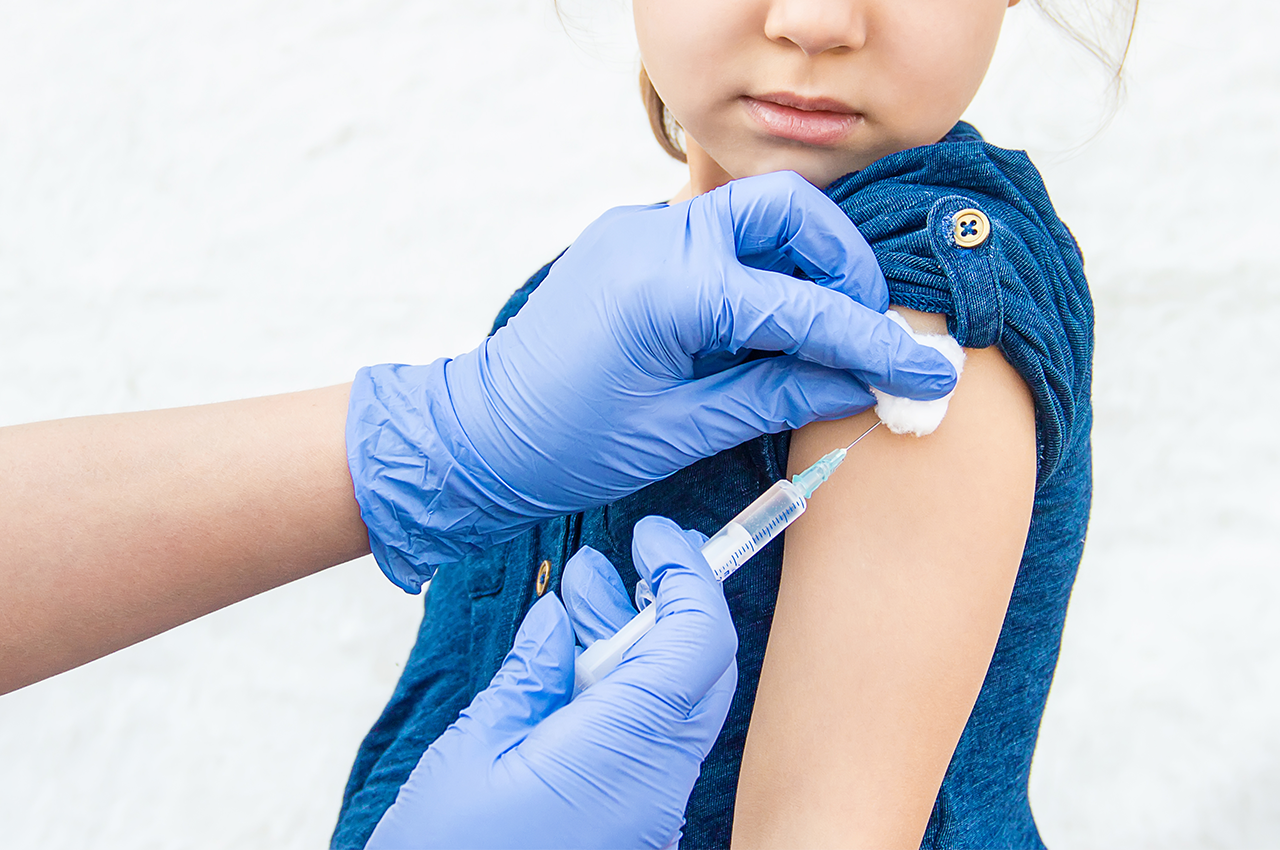Measles is an infectious illness caused by the rubeola virus. And although there is a vaccine for measles, it’s still one of the leading causes of death in children.
The measles virus is found in the mucus of your nose and throat. This means you can get the virus by breathing in when an infected person coughs, sneezes or talks. It’s so contagious that you can get it simply by being in the same room as an infected person.
If you haven’t been vaccinated and come into contact with someone who has measles, you are very much at risk of getting infected. You are also more at risk if your diet is generally unhealthy, and you have a weak immune system.
Once you have been infected by the virus, it takes about 10 days for you to start experiencing symptoms. A fever is usually the first sign and can last up to seven days. Watch for other signs like a runny nose, red eyes, a rash (usually starts near your hairline and spreads to the neck, limbs, feet, hands and torso), and tiny white bumps in your mouth (Koplik spots).
How is it treated?
There’s no cure or specific treatment for measles, but there are some ways to help ease its symptoms.
Medication
Talk to your doctor about medication to treat the symptoms. There are over-the-counter pills which can help with a fever. Don’t give these to your child though – unless your doctor approves.
Antibiotics aren’t usually prescribed, unless there’s a bacterial infection along with measles. As your doctor to check your vitamin A levels. People with low vitamin A are more likely to have severe measles symptoms.
Post-exposure vaccination
If you haven’t had the measles vaccination, you may be given the vaccination within 72 hours of being exposed to the virus. This will help protect you against the disease and make any symptoms easier to cope with.
Home remedies
To recover and boost your immune system, avoid tiring activities and get plenty of rest. This includes resting your eyes, as bright lights can cause strain. Drink plenty of water to replace water lost while you had a fever.
Lower your chances of getting measles and other illnesses:
- Wash your hands often with soap and water. Use sanitiser with at least 60% alcohol if there isn’t soap and water available.
- Don’t touch your nose, eyes, mouth, or face.
- If you know someone is sick, stay away from them! This includes kissing, hugging and sharing utensils and cups.
- Cover your mouth and nose with a tissue or your sleeve if you cough or sneeze.
- Children are usually given two injections for measles. One injection is after they’re older than 12 months, and again between the ages of four to six. Talk to your doctor about having the measles vaccine if you or your children haven’t had it already.
References:
- https://www.medicalnewstoday.com/articles/37135.php
- https://www.webmd.com/children/vaccines/measles-faq#2
- https://www.mayoclinic.org/diseases-conditions/measles/diagnosis-treatment/drc-20374862
- https://www.mayoclinic.org/diseases-conditions/measles/diagnosis-treatment/drc-20374862
- https://wwwnc.cdc.gov/travel/diseases/measles
- http://www.who.int/news-room/fact-sheets/detail/measles
- https://www.healthline.com/health/measles
- https://www.sahealth.sa.gov.au/wps/wcm/connect/public+content/sa+health+internet/health+topics/health+conditions+prevention+and+treatment/infectious+diseases/measles

